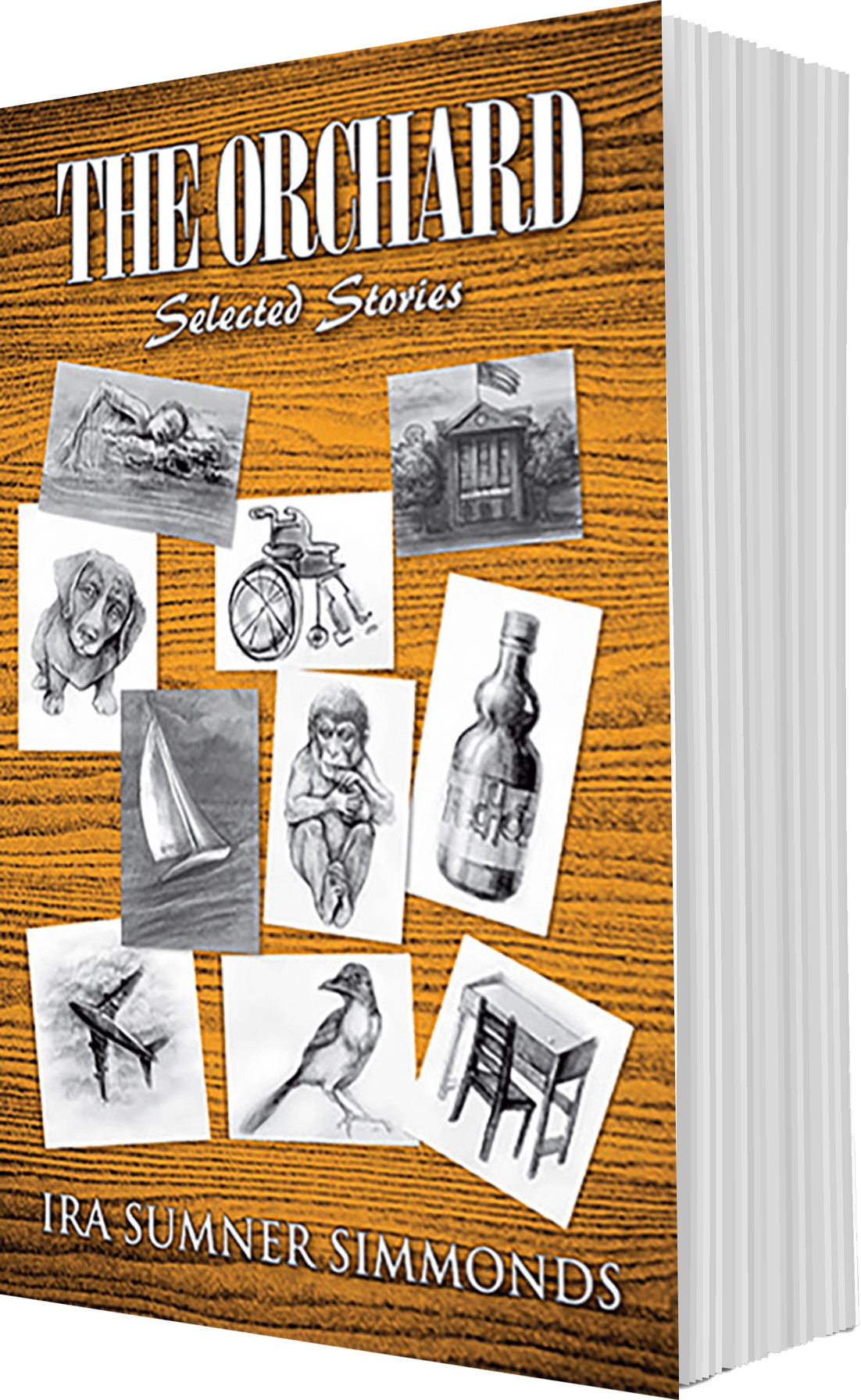Book Reviews
Click below to read official book reviews from onlinebookclub.org and kirkusreviews.com

El Huerto: Cuentos Seleccionados
Online Book ClubKirkus ReviewsOfficial OnlineBookClub.org Review of El Huerto: cuentos seleccionados by Ira Sumner Simmonds
As the nights get longer and the skies grayer, it’s tempting to daydream about Caribbean beaches. Of course, you can always take a virtual trip by picking up a book set in an exotic location! Voyages are a key theme of El Huerto: Cuentos Seleccionados [The Orchard: Selected Stories] by Ira Sumner Simmonds. This is an anthology of short stories in Spanish; it’s translated from an English original. In settings like the cabin of a badly delayed aeroplane, the deck of a Sunfish, and a dream home on a Caribbean island, the stories explore paradoxes. They examine man’s place in relation to natural forces, including the effects of aging on one’s parents.
Starkly contrasting feelings are evoked in one of the briefest and most powerful stories entitled “Mi Viejo y el Mar [My Old Man and the Sea]”. Intriguingly, a son notices how his family history from the 1850s contained in an archive in Nevis appeals so much more than his childhood home in Saint Kitts. Loss, often to dark and destructive forces, is also explored in another evocative story where a son symbolically sails away from his mother on the shore. I appreciated the clever way in which this story was crafted. Owing to Alzheimer’s, the mother has forgotten that the narrator is her son and calls him “el hombre [the man]”, yet the story also reveals a more positive aspect to this.
For it is not the case that the dark side dominates. On the contrary, the stories are colorful and bright. I enjoyed learning the names of many new birds. The tales contain humour, like the one about a dog which leaves little doubt as to who the real master is. Man’s dominion over animals also comes into question in “El Huerto [The Orchard]” where vervet monkeys cause trouble in paradise. They are particularly tiresome because they grab ripe fruit, take a bite, and then throw it down. I was interested to consider this from a post-colonial perspective: not only were the monkeys introduced by colonists but also their sense of entitlement is based on the so-called VERVET Law. The acronym “VERVET” comes from an English phrase, as the translator notes. Probably it wasn’t possible to find a Spanish phrase whose initials spelt “VERVET”, which is fair enough. As a translator myself, I know that these conundrums come up. On occasions, however, the language seems to read more like English.
Some of the idioms, including perhaps “trouble in paradise”, seem less common or natural in Spanish. The translated text was pretty clean, though some errors slipped through. The collection is rich and thought-provoking. Tension often built up during the stories, but some of the endings felt anticlimactic. On that basis, I rate this book three out of four stars. I can’t wholeheartedly recommend it to connoisseurs who like their short fiction to end with a jolt. That said, the stories do feature unexpected developments and alternative perspectives. I’d recommend this book to anyone who enjoys fast-paced tales that examine relationships, including those between humans and animals. Profane language features prominently in a story about a pottymouthed individual; if that is not a problem, this book could be enjoyed by those in their teens and upwards.
******
El Huerto: Cuentos Seleccionados



